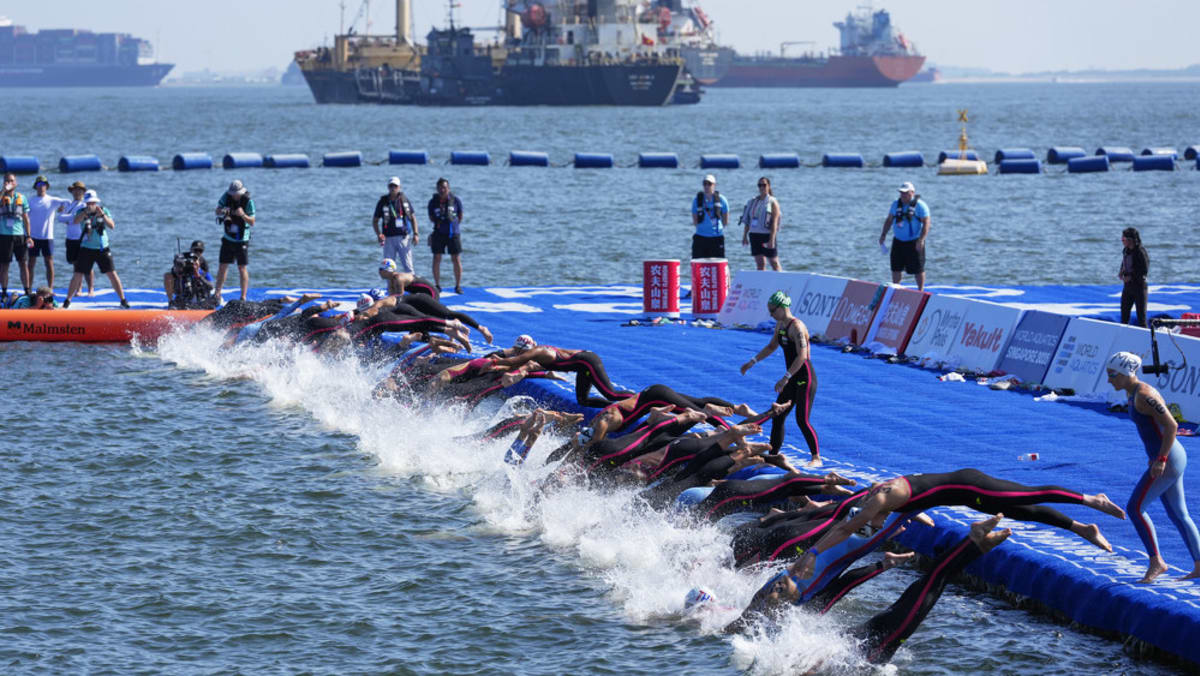How does Singapore measure beach water quality?
NEA adopts WHO’s 2021 guidelines for recreational activity – the levels of enterococcus in at least 95 per cent of 100 samples must not exceed 200 counts per 100ml.
Counts per ml account for both viable and non-viable bacterial cells, while colony-forming units per ml focus on the viable, culturable portion only.
When asked about the cause of the elevated E. coli levels as indicated by the World Aquatics tests, NEA said it follows WHO guidelines on measuring marine water quality and that these guidelines do not include E. coli.
WHO recommends using only enterococcus for assessing marine water quality as epidemiological studies have shown a strong correlation between enterococcus levels in marine waters and public health risks, said NEA in a statement on Wednesday night.
“WHO has assessed that there is currently insufficient data to develop similar guidelines for E. coli for marine waters. While E. coli is a suitable faecal indicator for fresh water, no guideline value has been set by WHO due to insufficient data,” said the agency in its statement.
NEA releases weekly updates on its website on enterococcus levels at several recreational beaches around Singapore. The beaches are also graded every six months based on the past 100 samples taken at each of them, NEA said on Wednesday.
Only beaches classified as “good” and above are suitable for primary contact activities, where the swimmer’s whole body, face and trunk are frequently immersed, and they are likely to swallow some water.
All three beaches at Sentosa were graded as good in the latest grading exercise in January, said NEA in its statement.
The water quality at Sentosa’s beaches has been in the “normal” range in the past few weeks, the statement read.
In February 2024, NEA advised people against swimming at Pasir Ris Beach and Sembawang Park Beach due to more frequent readings of elevated enterococcus bacteria levels in the water.
As of January 2025, Pasir Ris Beach has been graded “good”. But for Sembawang Park Beach, members of the public are still advised to not swim and to not do other primary contact water activities.
NEA, however, cautioned that beach users should avoid entering the water immediately after heavy rainfall, regardless of water quality.
Those with open sores, skin infections, or who are unwell should also refrain from water activities.
